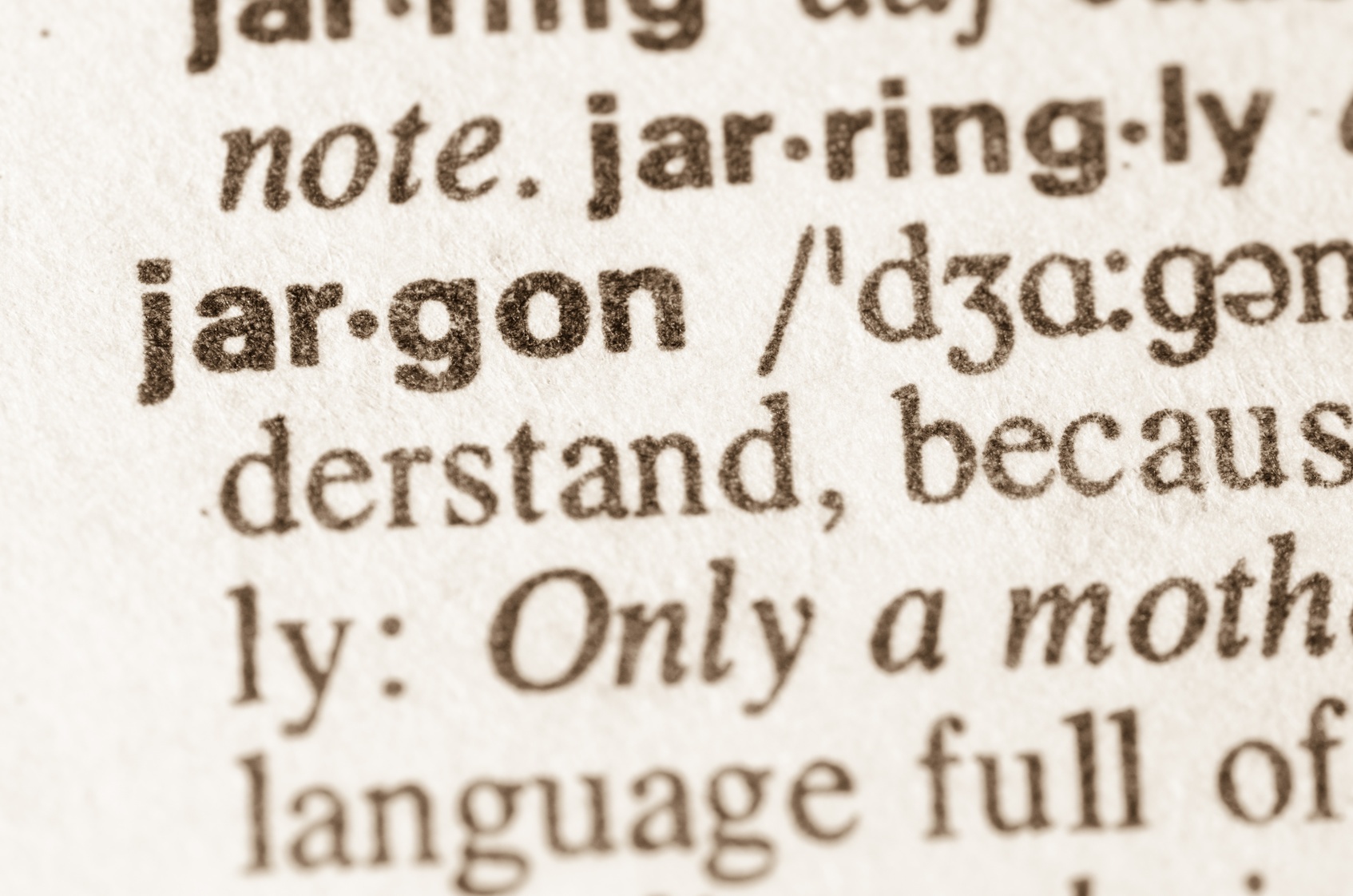Stop Using These Words! A Compilation Of Overused Jargon In Copy Writing


by Megan Marling • 2 minute read • July 22, 2016

As a writer for an inbound agency, I interview clients daily. When I begin working with a new client (or a new subject matter expert), I often have a conversation with them that sounds something like this:
“[Name], I want you to talk down to me. As odd as that sounds, I want you to speak to me as if I’m a child when you describe [the topic]. My ignorance on this topic is a good thing, because I’ll be able to ask you the questions a new customer or website visitor might have. And this will help us avoid using too much industry jargon in our copy writing.”
If this sounds like a strange way to start a conversation with a new client, keep reading.
Why do people use jargon?
- They feel unsure or nervous about something they’re talking about—whether it’s their industry or the topic—so they use industry-standard language to fill in the gaps. (This Fast Company article does a great job describing how jargon is a crutch for nerves.)
- They want to appear more knowledgeable about the topic at hand, and they feel like jargon-laden language is the way to go. It’s easy to use industry-specific language when they talk to coworkers or others in their industry—and even easier to revert to this habit as a way to demonstrate mastery and understanding of a particular topic.
- They’ve become so accustomed to using jargon that they can’t think of another word or phrase to use instead. Like most people, I’ve fallen into the trap of using terms like “inbound” (inbound marketing), “MOF” (middle of funnel), or “SMEs” (subject matter experts) without giving a second thought as to whether the person I’m talking to is confused. It’s easy to do when you’re so used to certain terms! Let’s be honest—using the “right” word is challenging. (But as Mark Twain once said, “Use the right word, not its second cousin.”)
What are the consequences of using jargon?
- It diminishes your credibility. As we stated above, many people will use jargon as a way to sound more knowledgeable—but it actually has the opposite effect. If you select a particular word because you don’t know how else to describe something, you need to put more thought into the message you’re trying to convey. You want your reader to have a clear understanding of what you’re offering them or describing to them, so you need to know what you’re trying to say first.
- You sound like everyone else—and everyone else may not know what they're talking about. Your readers want to know exactly how you can solve their problems. But if your chosen terminology loses your readers, that means you didn’t effectively communicate. And that is exactly what an overuse of jargon will do.
16 Overused Words In Copy Writing
- End-to-end: This is a term used to describe how complete a software or solution is. Focus instead on everything your solution solves for and leave this word out of it.
- Trusted: Who trusts you? What makes you trusted? Make sure your readers know the answers to these questions if you’re going to use this word.
- Pipeline: How many times have you heard, “Yes, that project is in my pipeline” so far this week? Quite a few times, I’d imagine. Since a pipeline is, by definition, a “long pipe,” try using a term that better fits the context of your discussion.
- That: “That” can be used as a pronoun, adverb, or conjunction—so it’s unnecessary in many cases. If the sentence is complete without it, simply omit it!
- C-suite: If you’re talking about upper management (or a particular role in upper management), use that exact terminology instead.
- Ecosystem: Businesses today are typically comprised of a dynamic network of third parties and vendor relationships, and “ecosystem” is the popular and overused term to describe this network. Because of its overuse, try to avoid it altogether.
- Leverage: This is often a blanket term to describe using something for an advantage in business.
- Bandwidth: This is an overused way to describe how busy someone is.
- Disruptive: If your solution is causing a big shift or change to the status quo in your industry, your reader will know it without you spelling it out for them.
- Low-hanging fruit: This often refers to something that can be gained or gathered without much effort (and it may be the silliest-sounding phrase on this list!).
- Real-time: This typically refers to a software or hardware solution that provides immediate or instantaneous updates and is often seen paired with other jargon, like “real-time business intelligence solution” or “real-time integration.” If possible, skip this altogether and describe the real added value of this feature. For example, instead of “View your video in real-time,” try, “Watch your video as it records.”
- Robust: This is frequently used as a blanket statement to explain the depth of a product offering—the problem is, everyone thinks of their product as robust. Instead, explain how and why your product is “robust.”
- Absolutely, simply, certainly: Let your words speak for themselves—they don’t need qualifiers.
- All industry acronyms: CRM, CTA, and CRO mean different things to different people—and while a particular acronym may be common in your industry, it could confuse the pants right off a website visitor who doesn’t know anything about your company! At the very least, spell the acronym out and then include the acronym in parentheses upon first mention.
- Game-changing, revolutionary, world-class, cutting edge, epic: These five terms are used with the same idea in mind. Stop telling your readers that you’ve created something one-of-a-kind. Instead, tell them how your company or product offering is unique! What specifically sets it apart from everything else?
- Drill down: Unless you’re describing a process that involves using an actual drill, use “explain” or a similar term instead.
But, wait!
Now’s the part where I add a giant asterisk to this list of words. The thing is, I’ve used every word on this list at some point in my writing career. And I’ve used some of them recently!
So why am I telling you not to use them? Good question.
The idea behind “not using jargon” is to simply become aware of words that have lost their meaning due to industry overuse (or words that just have no clear meaning) and replace them when possible. At times, the best word to use will be something on this list—but if you become mindful of your jargon usage, you’ll begin to put more thought into explaining things properly to a reader. And that is the first step to becoming a better writer.
